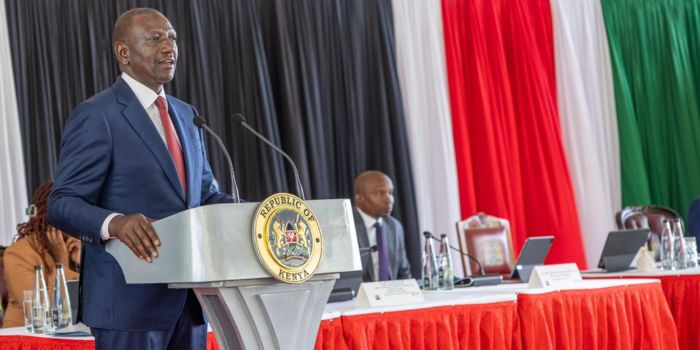In a year marked by economic turbulence and political upheaval, President William Ruto introduced a raft of new taxes in the country that left Kenyans reeling. While the President argued the need to add more taxes to enhance development, Kenyans could not help but feel the heavy burden in their pockets.
From the affordable housing levy to the taxes on content creation, here are some of the taxes that the president introduced in 2024, in his bid to collect more revenue.
Affordable Housing Levy
To facilitate President Ruto’s vision of providing affordable houses for Kenyans, the Head of State introduced a housing levy that saw Kenyans’ payslips shrink further. The levy is part of the Affordable Housing Act, 2024, and is deducted at the rate of 1.5 per cent of their salaries. It took effect in July this year
The effect of the tax on Kenyans was so tight that it had to be deductible from taxable employment income. While the intention is noble, many low and middle-income earners are concerned about the immediate financial strain.
President William Ruto filing his taxes at the KRA offices on May 26 2023
PCS
The main aim of the levy is to solve Kenya’s housing crisis. However, it has received rejection and criticism from Kenyans who are not confident that the government will deliver on its promise.
Tax on Content Creators
While calling for equitable tax policies to ensure that all sectors contribute to the country’s economy, President Ruto introduced a 15 per cent excise duty on social media and internet services as stipulated in the Tax Laws (Amendment) Bill, 2024.
This new tax directly affects content creators in Kenya who leverage platforms like YouTube, Instagram, Facebook, and other social platforms to create an income. The law stipulates that 15 per cent is added to the cost of any fees that are charged to users for accessing the internet or social media services.
Digital entrepreneurs have complained of this new tax noting that it will greatly affect them especially now that they have started reaping the benefits of digital entrepreneurship.
PAYE Adjustments
The Tax Laws (Amendment) Bill 2024 introduced significant changes to Pay As You Earn (PAYE) contributions. Deductions for contributions to post-retirement medical funds, the Social Health Insurance Fund (SHIF), and the Affordable Housing Levy were added.
According to the Bill, which was recently enacted into law by President William Ruto, new deductions will now be allowed in determining taxable employment income.
These include contributions to the Housing Levy, Social Health Insurance Fund (SHIF), and post-retirement medical funds, capped at Sh15,000 per month.
Economic Presence and Minimum Top-Up Taxes
According to the economic presence tax, non-residents whose income is earned in Kenya through services rendered by a firm operating through an online marketplace are required to pay the Significant Economic Presence Tax.
Three per cent of the non-resident’s gross turnover is the recommended tax rate. The taxable profit will be ten per cent of the gross turnover, and the appropriate tax rate for non-residents’ profits will be thirty per cent.
Removal of Tax Reliefs
Despite the additional taxes, the Kenya Kwanza Government removed some tax reliefs Kenyans were enjoying.
The Affordable Housing Relief and Post-Retirement Medical Fund Relief were removed. According to the Kenya Revenue Authority (KRA), the relief ceased since payments made with respect to affordable housing and contributions made to a post-retirement medical fund are now allowable deductions.
While the government promotes these changes as a long-term solution for the country’s stability, Kenyans continue to grapple with the effect of heavy taxation.
A graphic showing taxes and the Kenyan flag in the background.
Photo
Canva


